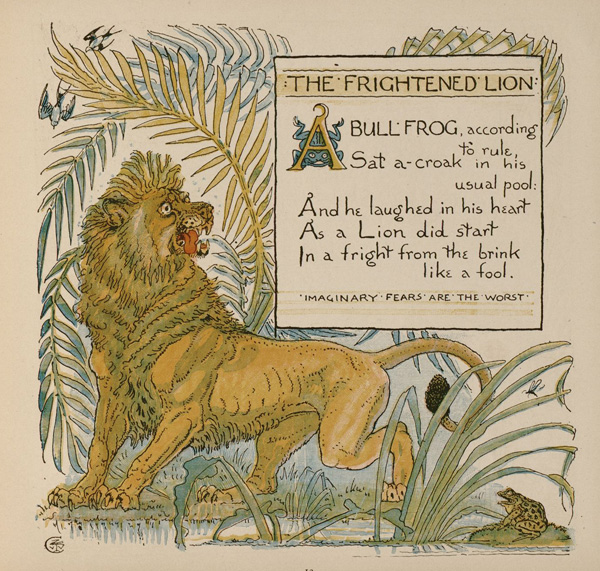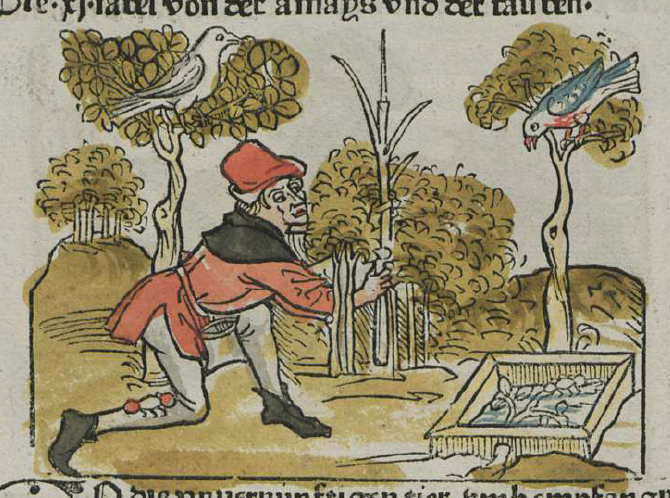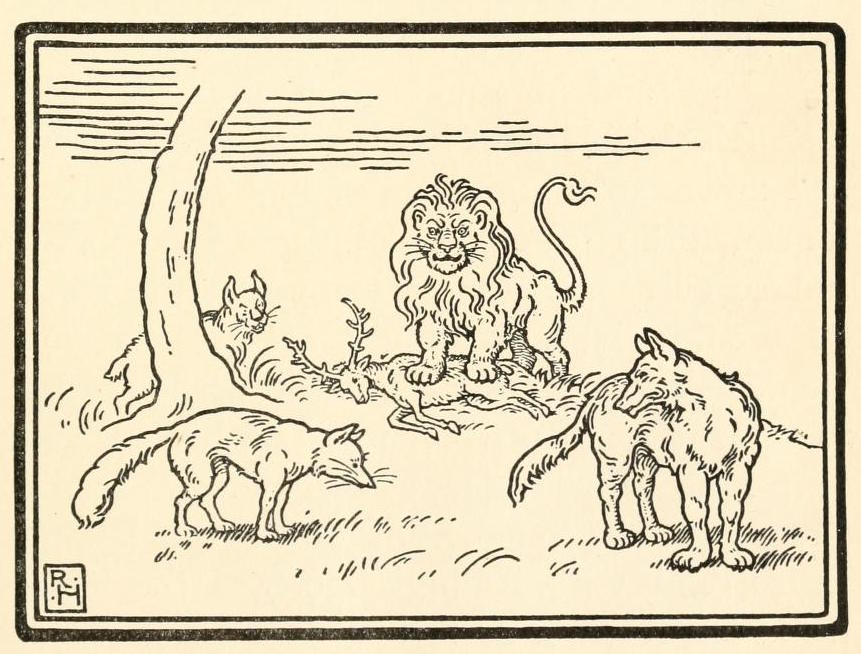51. Of the Lion and the Frog
The lion, when he heard the frog talking at a great rate, thinking it to be some great beast, turned himself back, and, standing a little, he sees the frog going out of the pool; which presently, enraged, he trod under with his feet, saying, "Thou shalt not move any more any animal with thy noise, that he may look at thee."
Moral. The fable signifies that among noisy men, nothing is found except a tongue.

52. Of the Pismire and the Dove
The pismire, thirsting, came to a fountain, that she might drink; by chance, she fell into a well. The dove, sitting upon a tree hanging over the fountain, when she saw the pismire overwhelmed in the waters, breaks a little branch from the tree, which she throws without delay into the fountain. The pismire, getting upon this, is saved. The fowler comes, that he may take the dove; the ant, perceiving that, bites one of the feet of the fowler; the dove flies away.
Moral. The fable signifies: when brutes are grateful to benefactors, by so much the more they ought to be who are partakers of reason.

53. Of the Peacock and the Magpie
The nation of birds, when they wandered freely, wished for a king to be given to them. The peacock thought himself chiefly worthy who should be chosen, because he was the most beautiful. He, being received for king, the magpie says, "O king, if, you governing, the eagle should begin to pursue us strenuously, as she is wont, by what method will you drive away her? By what means will you preserve us?
Moral. In a prince, beauty is not so much to be regarded as strength of body and prudence.

54. Of the Sick Man and the Physician
A physician had in cure a sick man; at length he dieth. Then the physician said to the kinsmen, "This man perished by intemperance."
Moral. Unless any one shall have left drunkenness and lust timely, either he never will arrive to old age, or is to have a very short old age.
[Clarke has missed the point of this one; for the traditional fable, where the doctor is mocked at the funeral, see The Doctor and His Patient.]
55. Of the Lion and Other Beasts
The lion, the ass, and the fox go to hunt. An ample prey is taken; taken, is commanded to be parted. The ass, putting to each their single parts, the lion roared, seizes the ass, and butchers him. Afterwards, he gives that business to the fox, who, more cunning by far, the best part being proposed, she had reserved scarce a very small one; the lion asks, "By whom so taught?" To whom she says, "The calamity of the ass has taught me."
Moral. He is happy whom others' dangers make cautious.


No comments:
Post a Comment
Comments are limited to Google accounts. You can also email me at laurakgibbs@gmail.com or find me at Twitter, @OnlineCrsLady.